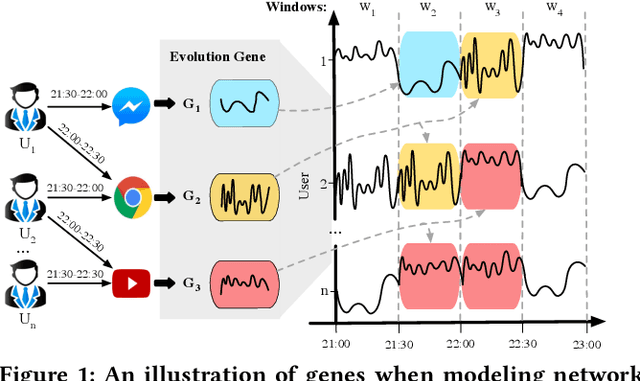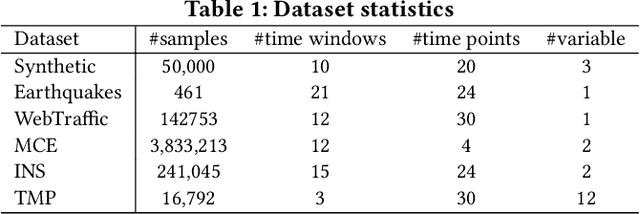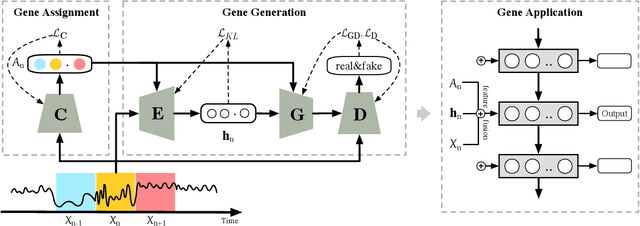Capturing Evolution Genes for Time Series Data
Paper and Code
May 10, 2019



The modeling of time series is becoming increasingly critical in a wide variety of applications. Overall, data evolves by following different patterns, which are generally caused by different user behaviors. Given a time series, we define the evolution gene to capture the latent user behaviors and to describe how the behaviors lead to the generation of time series. In particular, we propose a uniform framework that recognizes different evolution genes of segments by learning a classifier, and adopt an adversarial generator to implement the evolution gene by estimating the segments' distribution. Experimental results based on a synthetic dataset and five real-world datasets show that our approach can not only achieve a good prediction results (e.g., averagely +10.56% in terms of F1), but is also able to provide explanations of the results.
 Add to Chrome
Add to Chrome Add to Firefox
Add to Firefox Add to Edge
Add to Edge